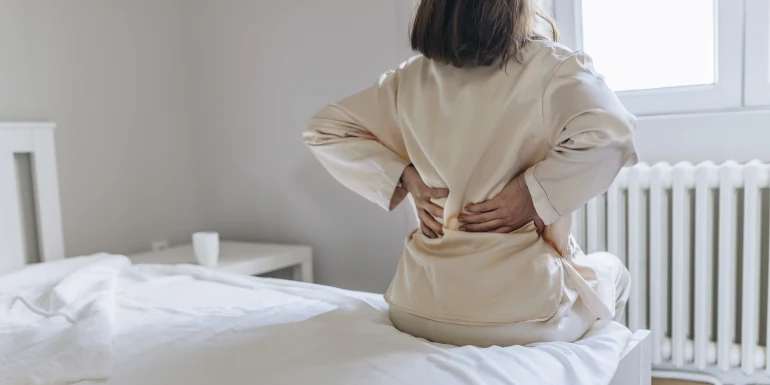Active self-healing powers through osteopathy
During treatment, osteopaths don’t just take the skeleton into account, they also consider the organs, tissues and nervous system. The aim is to improve flexibility and activate your body’s self-healing powers.

Osteopathy is a type of manual therapy and complementary medicine. This means that osteopaths work with their hands. They are experts in the musculoskeletal system. Osteopathy takes a holistic approach, as the entire body is considered as a single unit. This is why during treatment, osteopaths don’t just take the musculoskeletal system into account, they also consider the organs, tissues and central and autonomic nervous systems.
What happens during osteopathic treatment?
The aim of osteopathy is to improve the functionality and flexibility of your entire body, and to activate your body’s self-healing powers. Every treatment begins with a very detailed initial discussion. Your osteopath will ask you about your state of health. This includes, among other things, your current symptoms, your medical history and even your habits.
After the osteopathic and medical examination, your osteopath will then make a diagnosis and recommend a treatment. The treatment will then begin: for example, the osteopath will feel for tension or blockages in the body. To release these, they massage, stretch, push and move the affected joints, ligaments, organs and areas of the body. They do not us any devices or tools; they work exclusively with their hands. The treatments aims to improve the natural flexibility of your entire body.
Our services to keep you healthy
With COMPLETA supplementary insurance, 75% of the costs for complementary medicine and remedies during outpatient treatment are covered. You will receive 100% of the costs for inpatient treatment, up to a maximum of CHF 5,000 per calendar year.
Which symptoms does osteopathy help with?
Osteopathy alleviates a variety of symptoms. It’s suitable for all ages, which is why osteopathic treatment is commonly used for babies with colic or for pregnancy symptoms.
Osteopathy can help with:
- Functional disorders or problems with the musculoskeletal system
- General pain such as headaches or migraines
- Sport injuries such as sprains or muscle injuries
- Stomach and intestinal problems
- Developmental problems in children
- Ringing in ears (tinnitus)
- Sleep disorders
- Stress or emotionally stressful situations
Do you have any questions about osteopathy?

Articles about this topic
Disclaimer
The health information provided here is of a general nature and is intended exclu-sively for information purposes. It is not a substitute for medical advice. In the event of a health problem, you should always consult a doctor or medical specialist.
Do you have questions?
We're here to help.

